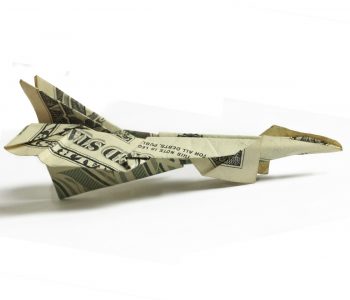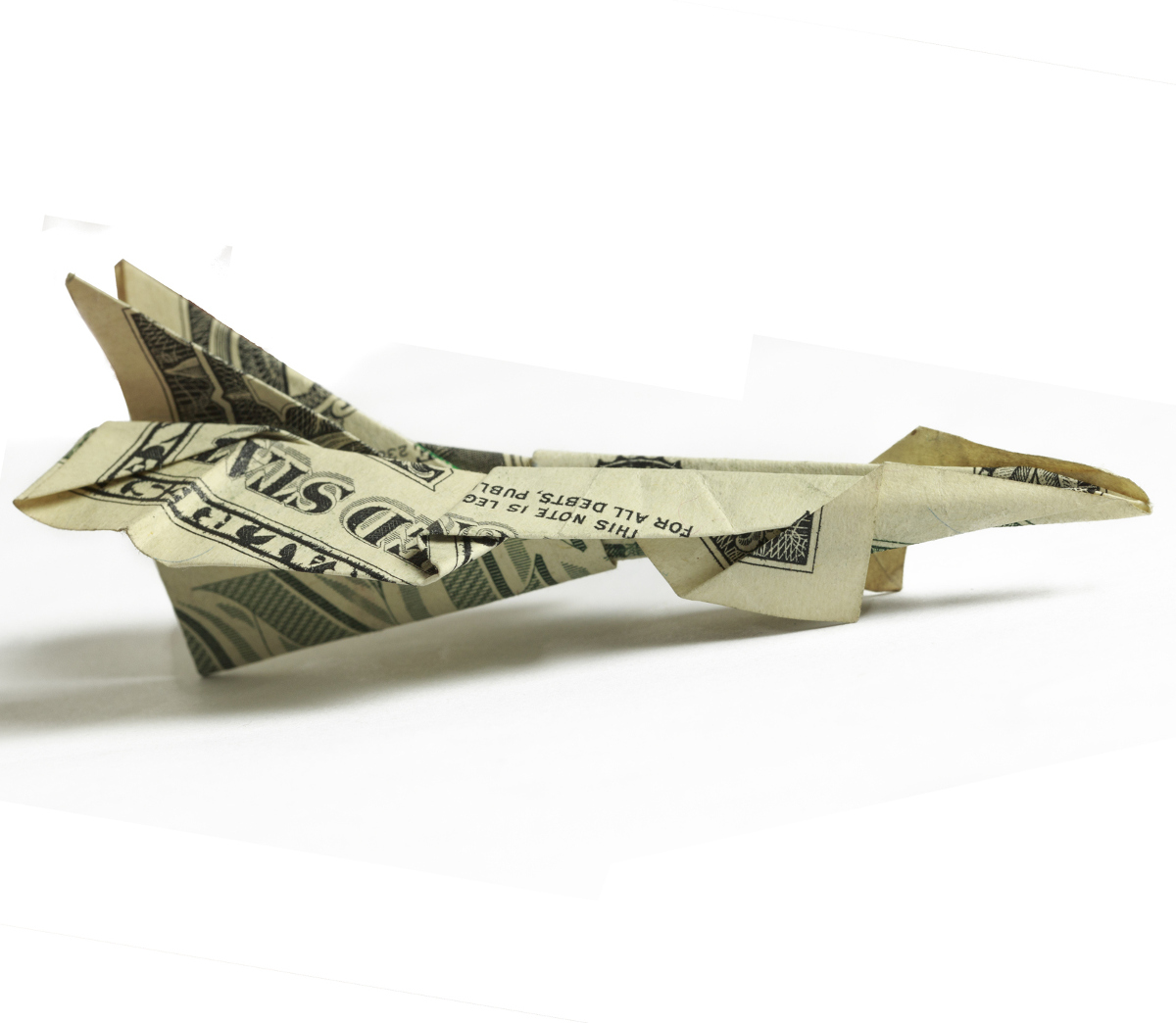Warren Buffett’s Favorite Stock: Why Does Buffett Love Delta Air Lines?

Warren Buffett’s Delta Air Lines Investment
In the third quarter of 2016, Warren Buffett purchased a position in Delta Air Lines, Inc. (NYSE:DAL) through his holding company, Berkshire Hathaway Inc. (NYSE:BRK.B). Buffett is known as a very disciplined investor who follows a strict set of rules and guidelines that he has used over his entire investing career. These rules and guidelines come from his personal experiences and are applied to every potential investment.
This is not the first time Buffett has made an investment in an airline stock. That said, in 2001, the “Oracle of Omaha” told investors that his past experience in airline stocks was a mistake. However, he still struggled to stay away from the segment.
“Now if I get the urge to invest in airlines, I call an 800 number, and I say: Hello, my name is Warren, and I’m an air-o-holic,” he said. (Source: “Berkshire Bets on Airlines With Stakes in American, Delta,” Bloomberg, November 14, 2016.)
So what made Buffett finally crack and make an investment in Delta Air Lines? This question will be answered, but first, I will explain the guidelines used by Buffett to determine if an investment would be appropriate or not. By the end of the article, it will be clear why Delta Air Lines is Warren Buffett’s favorite stock.
Warren Buffett’s Rule and Guidelines
You may be curious about Warren Buffett’s investment philosophy and wonder how complex it is. Well thankfully, his investment strategy is easy to use and takes information about just four details to make a decision. Buffett uses these four questions for every new investment opportunity or existing position that he is considering increasing. Below are the four things that Buffett needs to know before deploying capital.
1. Understand the Business
This might sound like an easy step, but many investors do not even consider doing this before making an investment. Even Warren Buffett, with his many years of experiences, will come across business models that he simply cannot understand, staying away as a result.
To apply this to your own investment strategy, I would recommend researching the company and then trying to explain it to a non-investor. If you find it difficult to explain in just a few minutes or the non-investor does not understand, then it might be best to stay away from the investment.
2. Bright Long-Term Prospects
Warren Buffett’s investments are typically held forever; once the investment is made, he does not look back, and the capital remains in the stock. This is why Buffett considers both the company’s present environment and future outlook.
A sector that has a low barrier to entry, meaning anyone could join and operate in it with minimal capital and research, would go ignored by Buffett. An example would be a local coffee shop; anyone could open one, since it does not take a lot of time or effort.
This type of business model can easily take market share from an existing business, hence why Buffett stays away. Instead, he looks for investments in sectors that have a high barrier to entry, including those operating in an oligopoly or monopoly.
These companies have a large portion, if not all, of the market share in their segment, which therefore stays large and keeps revenue strong, steady, and recurring.
3. Strong Administration
Any company with shareholders should be working in their best interests. And before Buffett takes a stake in any company, he wants to ensure that the company follow through with this. In particular, he takes a look at how the company has performed against its peers in the industry, expecting the company to either be in line with the group return or having generated a higher one.
One financial metric that Buffett uses is the return on equity (ROE). Buffett prefers using this statistic over earnings per share because it measures the past returns that investors have received.
Return on equity, also known as return on net worth, is calculated by dividing net income by shareholders’ equity. It measures the profitability of how much profit the company generates with each dollar of shareholders’ equity. Buffett looks for a high and stable ROE before deploying capital into an investment.
Other financial areas that are considered by Buffett are the debt level and profit margins, preferring them to be low and high respectively. He will also look to see if shares are being repurchased. As explained numerous times in my articles, share buybacks mean there are fewer shares trading on the markets, leaving shareholders owning a larger piece of the company. However, what I may not have mentioned before is that this also increases the ROE.
4. Attractive Price and Valuation
Buffett does not want to overpay for or chase a stock, preferring to purchase the shares at a price and valuation that makes sense. This removes the emotional aspect of decisions, making sure you’re dealing in facts and numbers alone.
Now let’s take a look at why Delta Air Lines stock is Warren Buffett’s new favorite stock.
Why Is Delta Air Lines Warren Buffett’s Favorite Stock?
1. Business Model
Delta Air Lines is a company that provides air transportation for passengers and cargo worldwide, serving over 300 destinations around the world in more than 50 countries. It became one of the largest passenger airlines in the world following a merger with Northwest Airlines in 2008. For the countries it does not operate in, it forms partnerships with local airlines.
The business model is simple enough: Delta makes the bulk of its revenue from owning and leasing planes to move cargo and passengers. Other sources of income include in-flight services such as food, beverages, and Internet and media library access; the margins for these services are quite large.
The handling of cargo is provided to both small- and large-sized businesses, as well as everyday customers. However, the majority of revenue is earned from servicing business customers since they provide a lot more repeat business and greater demand.
2. Future Outlook
There are 15 major commercial passenger airline companies in the U.S. with revenue of more than $1.0 billion. There used to be more, but the number has decreased over the years because of mergers and bankruptcies. The industry as a whole, however, remains controlled by four major companies which own approximately 75% of the total revenue, one of which is Delta Air Lines.
The aforementioned 2008 merger with Northwest Airlines was a great strategic move by Delta because there was not much overlap of the companies’ networks. As a result, the merger greatly increased Delta’s global presence, number of passengers, and market share. A high market share also creates a high barrier to entry in order to keep away competition. Aircrafts are already very costly, not to mention large airport landing fees.
The large market share and high barrier to entry make Delta Air Lines part of an oligopoly. Only a handful of other companies competing with Delta means a high probability of seeing no new competition while those that dominate in the space tend to increase their market share further.
It also helps that the outlook for the airline industry is so bright. According to a study by the International Air Transport Association, the number of passengers traveling by plane will hit 7.3 billion by 2034, double the amount of passengers traveling presently. The growth is mainly expected from the U.S., China, and India, all countries which Delta has operations or partnerships in. (Source: “New IATA Passenger Forecast Reveals Fast-Growing Markets of the Future,” International Air Transport Association, October 16, 2014.)
Also note that cargo is a booming business with a lot of growth ahead. The success comes from many businesses not owning their own planes to ship their own goods, therefore requiring Delta’s services. It is also thanks to the growth of e-commerce, which has helped create higher demand for transport services. And since e-commerce is the future of business, that demand is only going to increase.
3. Performance and Rewards
To determine how well a management team operates the business, look at its margins. Buffett observes these financial metrics because margins are the money that is left over after paying for general business expenses such as rent, salaries, and fuel/transportation. These margins are compared to the industry average, which in the case of Delta includes all the other airline companies.
The best three metrics to look at are the gross, operating, and profit margins. For Delta, all of these are higher than the industry average, which means the company is being run incredibly well.
Buffett’s most important financial metric is the ROE, and Delta doesn’t disappoint. The company’s ROE is north of 30% and approximately five percent above the average. This means that investors in Delta would benefit over those invested in the rest of the airline industry as a whole. A strong ROE also signals to the markets that Delta ensures investor rewards. The higher ROE can be traced to the company’s higher margins.
Share buybacks are another reason for the strong ROE. The most recent share repurchase program was announced in 2015 for $5.0 billion, scheduled to be completed by December 2017 at the latest. Buffett is a big believer in owning shares forever, and share repurchases benefit investors who hold on to their shares the most. (Source: “Delta Announces Plan To Return Additional $6 Billion To Shareholders Through 2017,” Delta Air Lines, Inc., May 13, 2015.)
Delta Air Lines is also the source of a growing dividend. Over the past three years, the dividend has more than doubled, which means a higher ROE and, more importantly, more money for investors. This trend appears likely to continue, as less than one-fifth of every dollar is paid out as a dividend meaning, meaning more than 80% is retained.
4. Attractive Valuation
Lastly, Buffett considers a company’s price and valuation. Based on the latter, Buffett started to accumulate his position in Delta Air Lines in the third quarter of 2016. In fact, Delta is still trading at a cheap valuation today, with its price-to-earnings (P/E) ratio trading at half the industry average.
The expectation from investors is that the valuation is trading more in line with the industry average. This won’t happen overnight, of course, but the odds of it happening are high. This is because Delta’s high margins would be reflected in the financial statements, which a greater number of investors would notice. Also, as the dividend grows, more investors would be interested because of the steady income source, leading the shares to be bid higher over time.
The Bottom Line on Warren Buffett’s Delta Air Lines Investment
Even though past Warren Buffett investments in the airline sector were not a success, the industry today is a lot different. There are fewer companies operating in this market segment and those still around have a larger market share.
The Delta Air Lines of today meets all of Warren Buffett’s investment criteria, which is why he’s deployed capital into the company. This is why Delta Air Line is Warren Buffett’s new favorite stock, with its potential to grow greatly.
You, too, have the opportunity to invest in Delta Air Lines, Inc. And while you wait for the shares to increase, you can earn a dividend.











